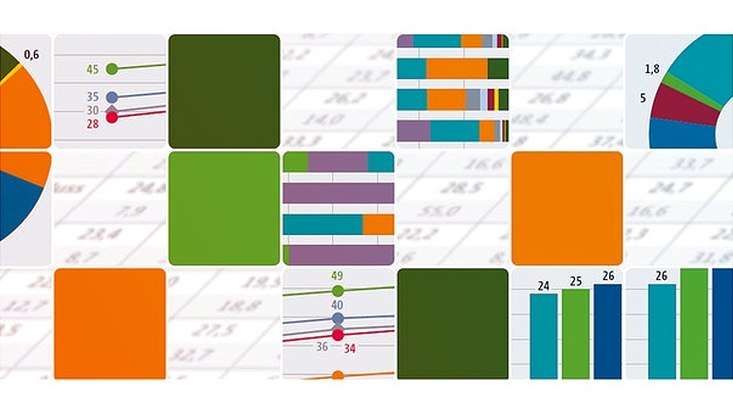Imaging of Matter
On the situation of young researchers in Germany: BuWiN reinforces the cluster's strategy
18 May 2021

Photo: wbv-Verlag / Marion Schnepf and Andreas Koch
How are young researchers doing in Germany? How are the conditions under which young researchers live and work? The recently published "Bundesbericht Wissenschaftlicher Nachwuchs" (National Report on Junior Scholars, BuWiN) addresses precisely these questions and identifies areas of development in the science system, which also guide a wide range of activities in the cluster "CUI: Advanced Imaging of Matter". In particular, the BuWiN reinforces the cluster's strategy of thinking about the promotion of young researchers, equal opportunities and diversity in a combined way and paying greater attention to issues such as the social background.
The BuWiN is produced every four years by an independent consortium and funded by the German Federal Ministry of Education and Research. The current report identifies, among other things, the issues of equal opportunities and questions of reconciling family and scientific research as important and forward-looking topics.
"We take these issues very seriously and are continuously working to create conditions in which all researchers can develop their potential regardless of gender, origin, sexual orientation or other diversity characteristics," says Eileen Schwanold, who oversees diversity issues at the cluster's office and works closely with the coordinator of the dynaMENT mentoring program, Julia Panzer, and careers officer Jutta Voigtmann.
Social background
Discussions about equal opportunities increasingly include the aspect of social background and its influence on an academic career. According to the report, significantly fewer children from non-academic households continue to enter university and are also less likely to take up and complete a doctorate. Persons with children are also less likely to take up a doctorate.
Temporary employments
BuWiN sees another major obstacle for young scientists in the insecure and often temporary employments: More than a third of employees under 45 years of age at a university or other research institution are employed part-time; in mathematics and natural sciences, 96% from this age group have a temporary contract.
Balancing a career
Dropping out of doctoral studies may also be influenced by a lack of opportunities and prospects for balancing a career. For example, about 70% of doctoral students with children think about dropping out of the doctoral program at least once. 60% of fathers and 75% of mothers indicate that compatibility plays a role here. However, the figures have improved slightly since the 2017 report.
From the doctoral phase onwards, further differences can be seen, particularly concerning gender equity: While roughly equal numbers of women and men enter graduate studies, across all disciplines 43% of junior professorships are held by women, but only 27% of new W3 appointments. The proportion of women declines with increasing qualification level.
Importance of personnell development has increased
Since 2005, funding from the federal and state governments and programs such as the DFG for the promotion of young researchers at universities has increased significantly overall, and so has the number of young researchers. According to the report, the importance of personnel development has also increased: across all status groups, various measures for career development, as well as for personnel retention and loyalty, are being increasingly introduced. The cluster has also launched the "Young Investigator Group Leader Program," a concept for targeted support of highly talented young researchers.
Overall, 80 percent of funding at CUI goes toward supporting young researchers. The doctoral and postdoctoral researchers benefit from an outstanding scientific infrastructure and from the diverse offerings of the cluster, the Universität Hamburg and other institutions on the Bahrenfeld campus. There is a wide range of continuing education and support services, from social skills workshops and language courses to mental health seminars and career programs. "The offer is there, everyone can take advantage of it," summarizes Jutta Voigtmann. However, Jutta Voigtmann, Eileen Schwanold and Julia Panzer also agree that there is still a long way to go in terms of gender equality and compatibility in science. This makes it all the more important to think about the issues in a combined way.
2021 National Report on Junior Scholars (PDF)


